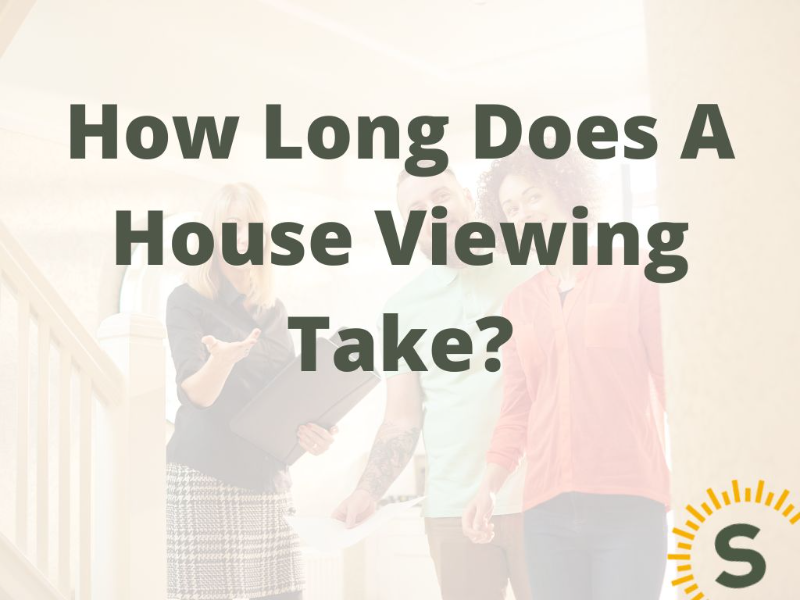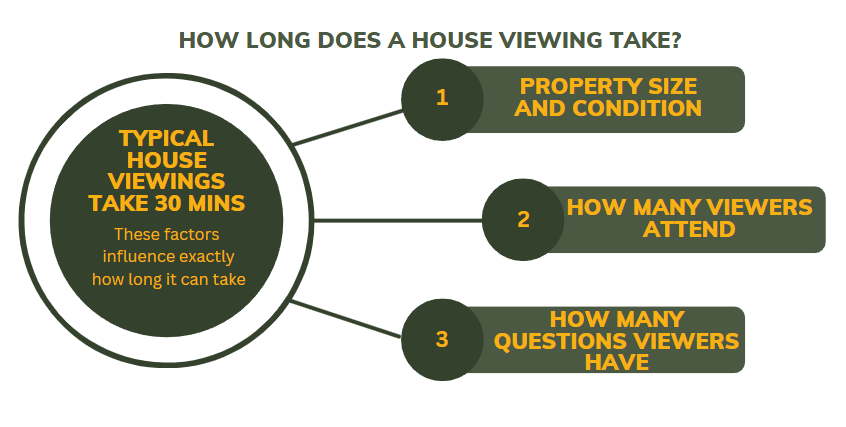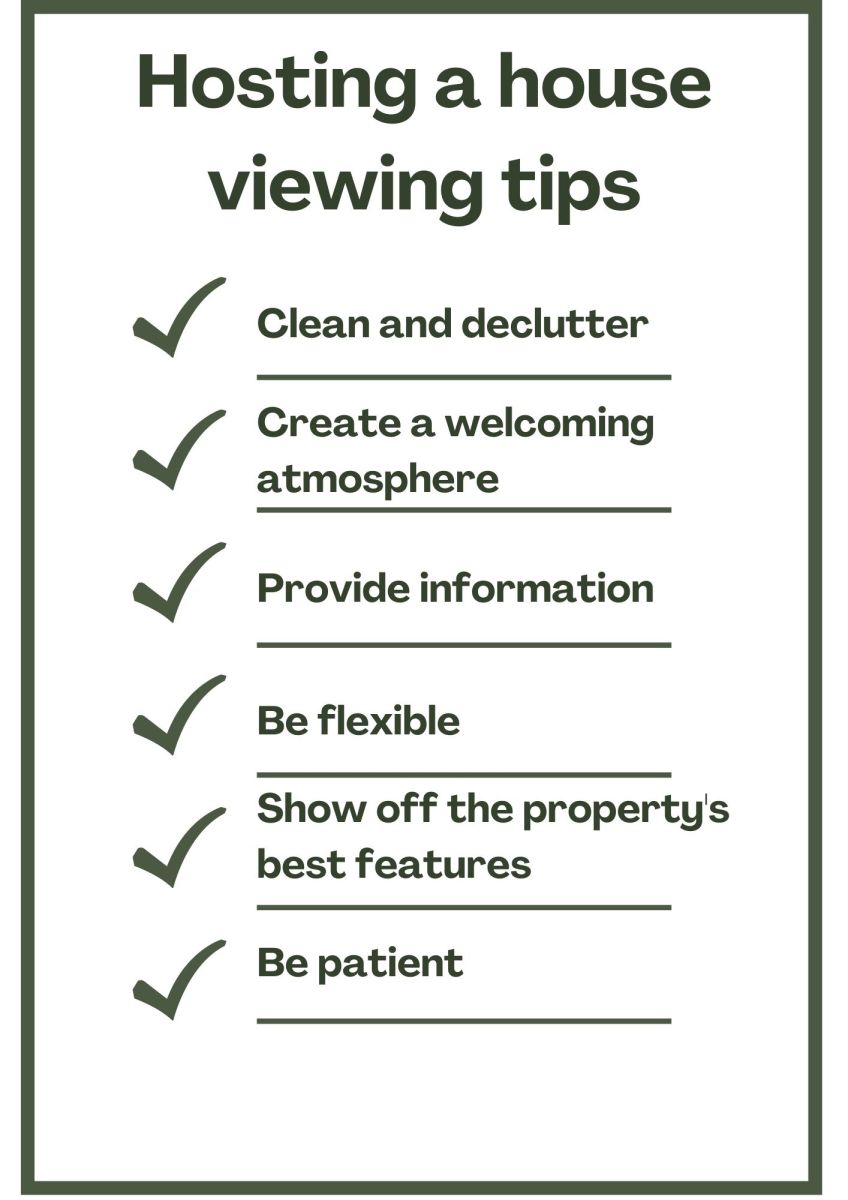
If you're planning to sell your home, you may be wondering, how long does a house viewing take? A house viewing is a crucial step in the home-selling process, as it provides potential buyers with the opportunity to see your property and determine if it's the right fit for them.
The time a house viewing takes can vary depending on a number of factors, such as the size and condition of the property, the number of viewers, and the level of interest in the property. Knowing how long house viewings take can help you plan your schedule and help you feel more confident when showing your home, without the need to rush.
In this insight, we'll explore the factors that can impact how long a house viewing takes and provide you with tips to help you prepare for a successful viewing. Whether you're a first-time seller or an experienced homeowner, keep reading to learn more about how to make your house viewing experience positive.
A typical house viewing takes 30 minutes, but the duration can vary depending on the size of the property, how many potential buyers attend, and the number of questions viewers may have. Ideally, allow an hour to compensate for overrunning.
To ensure that you don't run into any scheduling conflicts, it's a good idea to allow an hour for the viewing. This way, you can compensate for any potential overruns and avoid feeling rushed or stressed during the viewing. Plus, it's always better to have more time than less time when showing your property to potential buyers.
Remember that a house viewing is an opportunity to showcase your property and impress potential buyers. By understanding the factors that can impact the duration of a viewing and planning accordingly, you can create a positive experience for everyone involved. So, take your time, answer any questions the buyers may have, and make sure your property is presented in the best possible light.
More people are choosing to sell their homes themselves these days. But if you have an agent helping you sell, you can ask for specific time slots for viewings. Remember, it's still your home until you sign the papers, so you're allowed to rearrange viewings if needed. Don't be afraid to speak up and make sure the timing works for you!

Several factors can impact the duration of a house viewing. One major factor is the condition of the property. A well-maintained and recently renovated home may require less time for a viewing than a fixer-upper that needs significant work. In the case of a fixer-upper, potential buyers may need to spend more time inspecting the property to determine the extent of the necessary repairs.
Additionally, the age of the property can also play a role, with newer homes potentially requiring less time for a viewing compared to older homes with unique features and potential issues.
The number of people attending the viewing, the level of interest in the property, and the number of questions asked can also affect the duration of a house viewing. They may need additional time to clarify certain details about the property.
During a house viewing, it's important to be aware of what to expect from potential buyers. While most viewers are respectful, there are a few things to keep in mind.
For example, viewers may take photos of the property without permission, and some may bring children with them. If you have fragile or valuable items that could be knocked over, it's best to remove them or secure them in a safe place before the viewing.
You may also want to consider any potential hazards, such as sharp corners or loose carpets, and take steps to address them.
Additionally, some viewers may arrive late or outstay their welcome, while others may open cupboards and dig around. Being prepared and knowing what to expect can help you feel more in control during the viewing process.
You want to make the most of your viewings, ideally, the aim is to provide as much detail as you can to generate many offers. By following these tips, hopefully, you can avoid the need for second viewings.

A tidy and clutter-free home not only looks more attractive, but it can also make it easier for viewers to picture themselves living in the space. Consider hiring a professional cleaner and storing away any unnecessary items.
Small touches such as fresh flowers or a bowl of fruit can create a welcoming atmosphere for potential buyers. Make sure the property is well-lit and has a pleasant scent.
Prepare a list of features and benefits of the property, including any recent upgrades or renovations. Leave this information in a visible spot for viewers to read.
Try to accommodate the schedules of potential buyers by offering viewings at different times of the day. Be prepared to answer any questions they may have about the property.
Consider highlighting any unique features of the property such as a stunning view or original architectural details. This can help potential buyers appreciate the value of the property.
Hosting viewings can be a stressful experience, but it's important to remain patient and polite throughout the process. Remember that potential buyers may take longer to view the property or ask more questions, so be prepared to adapt and answer any queries they may have.
Flat viewings take around half an hour, the same amount of time as a house viewing. The difference with flat viewings is that you may want to take additional time to view the communal areas and ask the agent about ground rent or peppercorn rent and what is included with the service charge package. For example, there may be a communal gym as part of the facility.
**** 4.2

Having the right people around you during the house buying/selling process can make a world of difference. This can range from estate agents who can advise you on your question of how long does a house viewing take, to a mortgage adviser who can consider options around what might happen if you don’t quite get your asking price.
If you're unsure where to start with seeking mortgage advice, complete the Sunny Fact Find. The answers you provide help us to find the best-suited adviser for your needs. Your adviser then contacts you for a no-obligation chat on how they can help. You decide how to proceed.

Stuart is an expert in Property, Money, Banking & Finance, having worked in retail and investment banking for 10+ years before founding Sunny Avenue. Stuart has spent his career studying finance. He holds qualifications in financial studies, mortgage advice & practice, banking operations, dealing & financial markets, derivatives, securities & investments.
 No minimum
No minimum  Newcastle-under-Lyme, Staffordshire
Newcastle-under-Lyme, Staffordshire Free Consultations
Free Consultations
 No minimum
No minimum  Free Consultations
Free Consultations
 No minimum
No minimum  No obligation consultation
No obligation consultation
 No minimum
No minimum  No obligation consultation
No obligation consultation
 No minimum
No minimum  Free Consultations
Free Consultations
 No minimum
No minimum  No obligation consultation
No obligation consultation
 No minimum
No minimum  No obligation consultation
No obligation consultation
 No minimum
No minimum  Free Consultations
Free Consultations
 No minimum
No minimum  Coatbridge, Lanarkshire
Coatbridge, Lanarkshire Initial or Ongoing Consultation Fees
Initial or Ongoing Consultation Fees
 No minimum
No minimum  Initial or Ongoing Consultation Fees
Initial or Ongoing Consultation Fees
 £21,000 +
£21,000 +  Initial fee free consultation
Initial fee free consultation
 London, Greater London
London, Greater London No obligation consultation
No obligation consultation
 No minimum
No minimum  No obligation consultation
No obligation consultation
 No minimum
No minimum  Initial fee free consultation
Initial fee free consultation
 No minimum
No minimum  No obligation consultation
No obligation consultation
 No minimum
No minimum  No obligation consultation
No obligation consultation
 No minimum
No minimum  Initial fee free consultation
Initial fee free consultation
 No minimum
No minimum  Initial or Ongoing Consultation Fees
Initial or Ongoing Consultation Fees
 £51,000+
£51,000+  Free Consultations
Free Consultations
 No minimum
No minimum  No obligation consultation
No obligation consultation
 No minimum
No minimum  Initial fee free consultation
Initial fee free consultation
 £101,000+
£101,000+  Bishop's Stortford, Hertfordshire
Bishop's Stortford, Hertfordshire No obligation consultation
No obligation consultation
 No minimum
No minimum  Derry / Londonderry, County Derry / Londonderry
Derry / Londonderry, County Derry / Londonderry Free Consultations
Free Consultations
 No minimum
No minimum  Stockton-on-Tees, County Durham
Stockton-on-Tees, County Durham Free Consultations
Free Consultations
 No minimum
No minimum  Initial fee free consultation
Initial fee free consultation





Our website offers information about financial products such as investing, savings, equity release, mortgages, and insurance. None of the information on Sunny Avenue constitutes personal advice. Sunny Avenue does not offer any of these services directly and we only act as a directory service to connect you to the experts. If you require further information to proceed you will need to request advice, for example from the financial advisers listed. If you decide to invest, read the important investment notes provided first, decide how to proceed on your own basis, and remember that investments can go up and down in value, so you could get back less than you put in.
Think carefully before securing debts against your home. A mortgage is a loan secured on your home, which you could lose if you do not keep up your mortgage payments. Check that any mortgage will meet your needs if you want to move or sell your home or you want your family to inherit it. If you are in any doubt, seek independent advice.